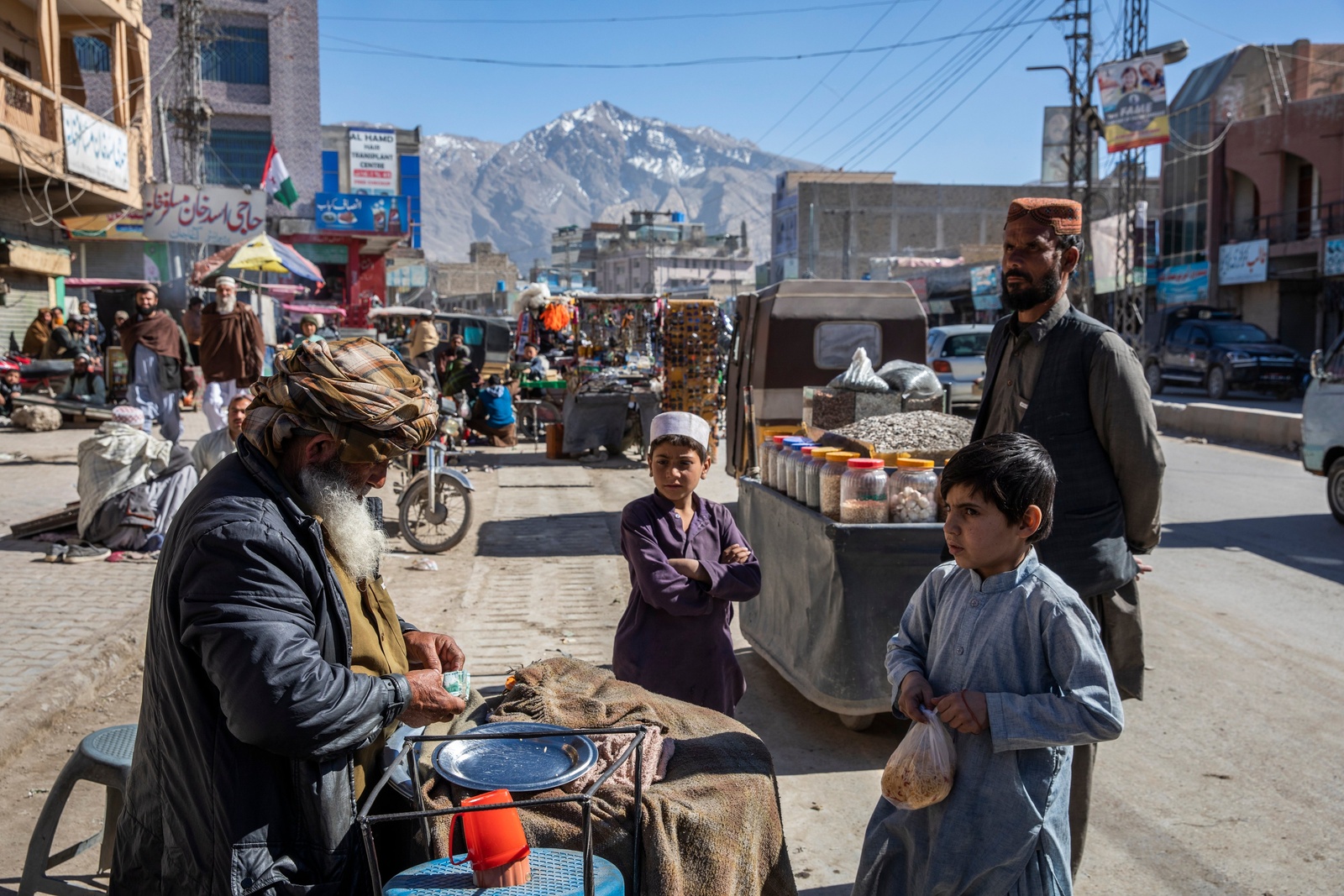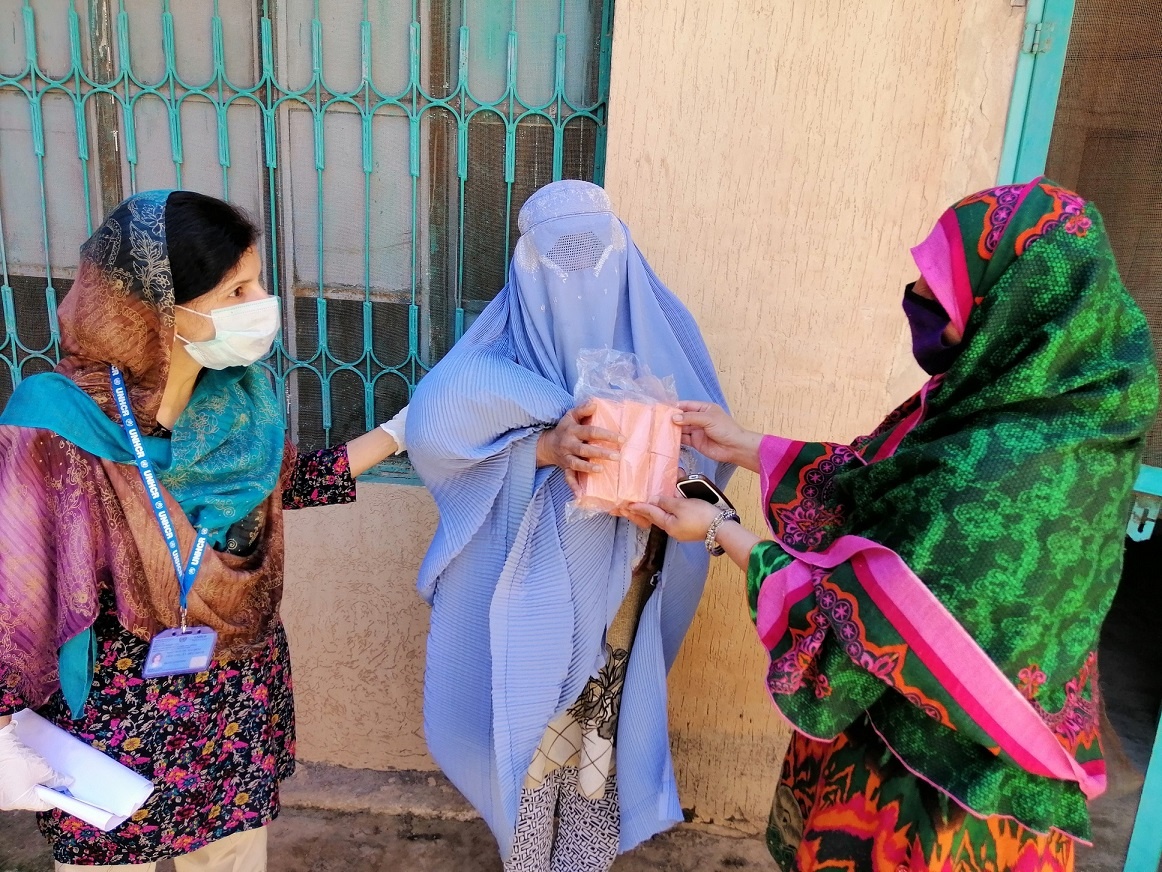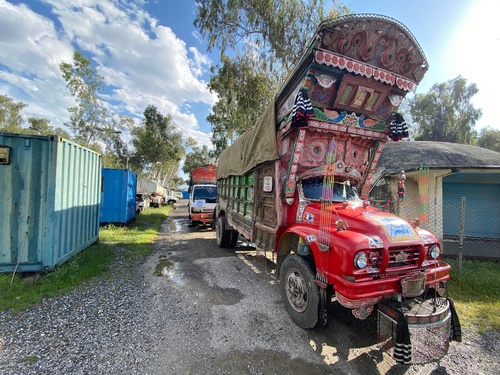Livelihoods
Livelihoods

© UNHCR
- Enhance knowledge and institutional capacity of UNHCR in the implementation of livelihoods interventions in Pakistan.
- Promote social organization and mobilization of POCs for active participation in the livelihoods programs.
- Enable Afghan refugees to preserve and protect their productive assets and meet their immediate consumption needs through Cash-Based Interventions.
- Develop and expand livelihoods options and innovative solutions that support self-reliance and economic independence of persons of concern.
- Enhance cross-border information sharing and cooperation in livelihoods development programs with the Government of Afghanistan and UNHCR Afghanistan
UNHCR provides livelihoods development opportunities to refugees and their host communities in order to enhance their self-reliance and economic capacity which will improve Refugee prospects for sustainable reintegration upon their return to Afghanistan. Livelihoods assistance is to be provided in relevant On-Farm and Off-Farm sectors, particularly in the market-led vocational and technical skills. Vocational and technical skill development and job placement of Afghan refugees will remain a priority and key area of operation. In accordance with UNHCR’s global operational guidelines, Technical and Vocational Education and Training (TVET), apprenticeship and job placement projects include the following essential elements:
- Create demand-driven skills training
- Career Development Counselling and Life Skills training
- Placement in the local job market and support in self-employment
- Build upon and develop partnerships with existing initiatives
- Adopt a gender-sensitive approach
- Advocate facilitating the recognition of diplomas, professional certifications and skills.
Since 32% of Afghan refugees live in refugee villages located mostly in rural areas and are engaged in agriculture, UNHCR’s livelihoods assistance may cover agricultural input seed, fertilizers, tool kits, livestock, poultry, and trainings to the households engaged in agrarian-based economy.
UNHCR can further build on the already provided artisanal skills training in 43 types of crafts by supporting the trainees in improving the product quality and linking them with local and international markets and financial institutions through the UNHCR’s MADE51 approach.
Access to financial services provided by public or private sector institutions remains challenging as Afghan refugees cannot open bank accounts and participate in the social safety net programs of GOP. While UNHCR will continue its advocacy on refugees’ right to work and access to financial institutions; Saving Groups formation at the community level could be a viable alternative option that would enable Afghan refugees to form their own financial safety nets and access financial resources in time of need.
Access to financial services
Given the importance of creating cross-border linkages that would increase the prospects for voluntary repatriation and sustainable reintegration of Afghan refugees in Afghanistan, UNHCR Pakistan will work closely with UNHCR Afghanistan by sharing the knowledge and information of cross border livelihoods situation, opportunities and possibilities against “PUSH and PULL Factors”, which will help in development cross-border livelihood program for Afghan refugees.







